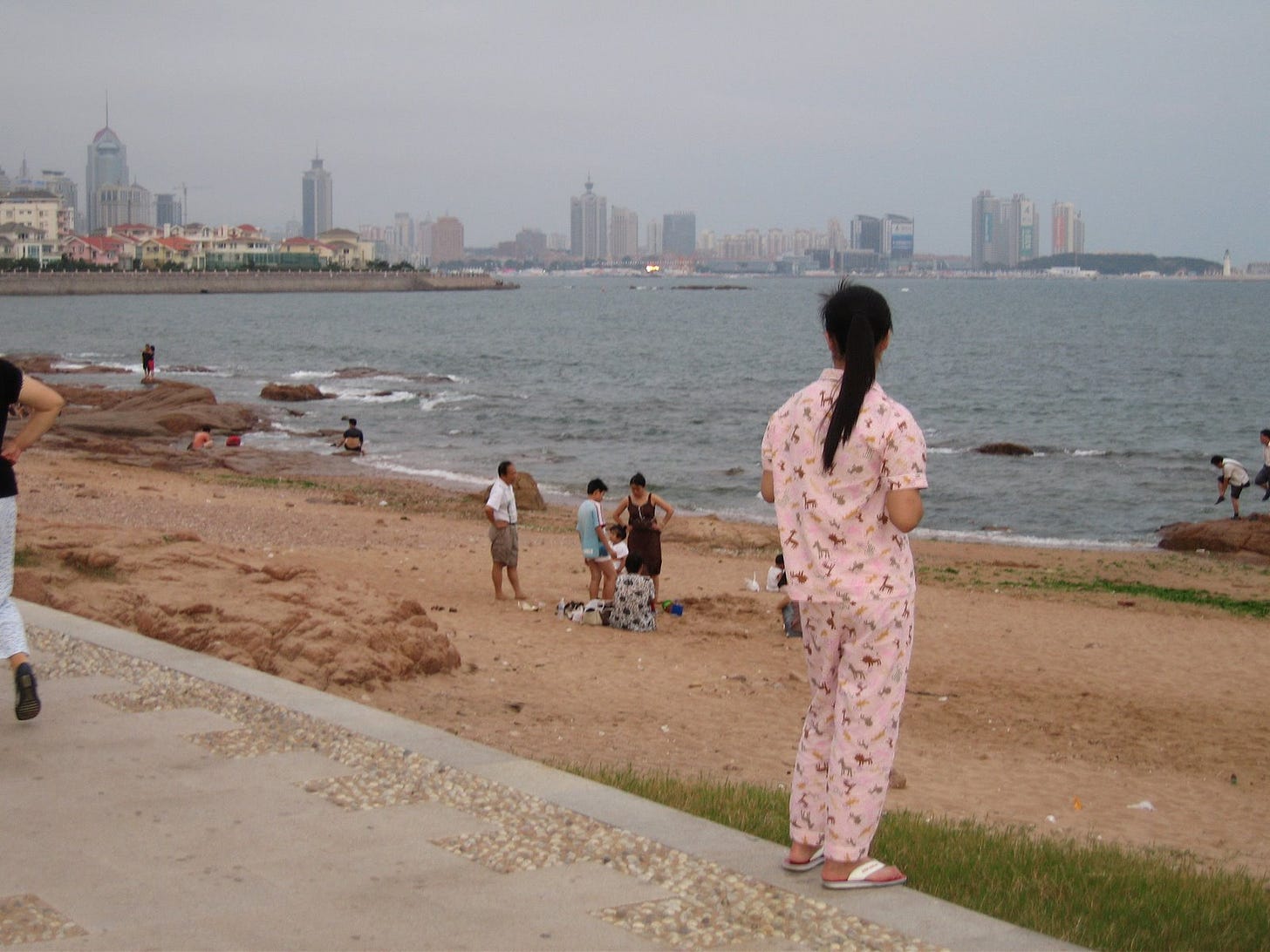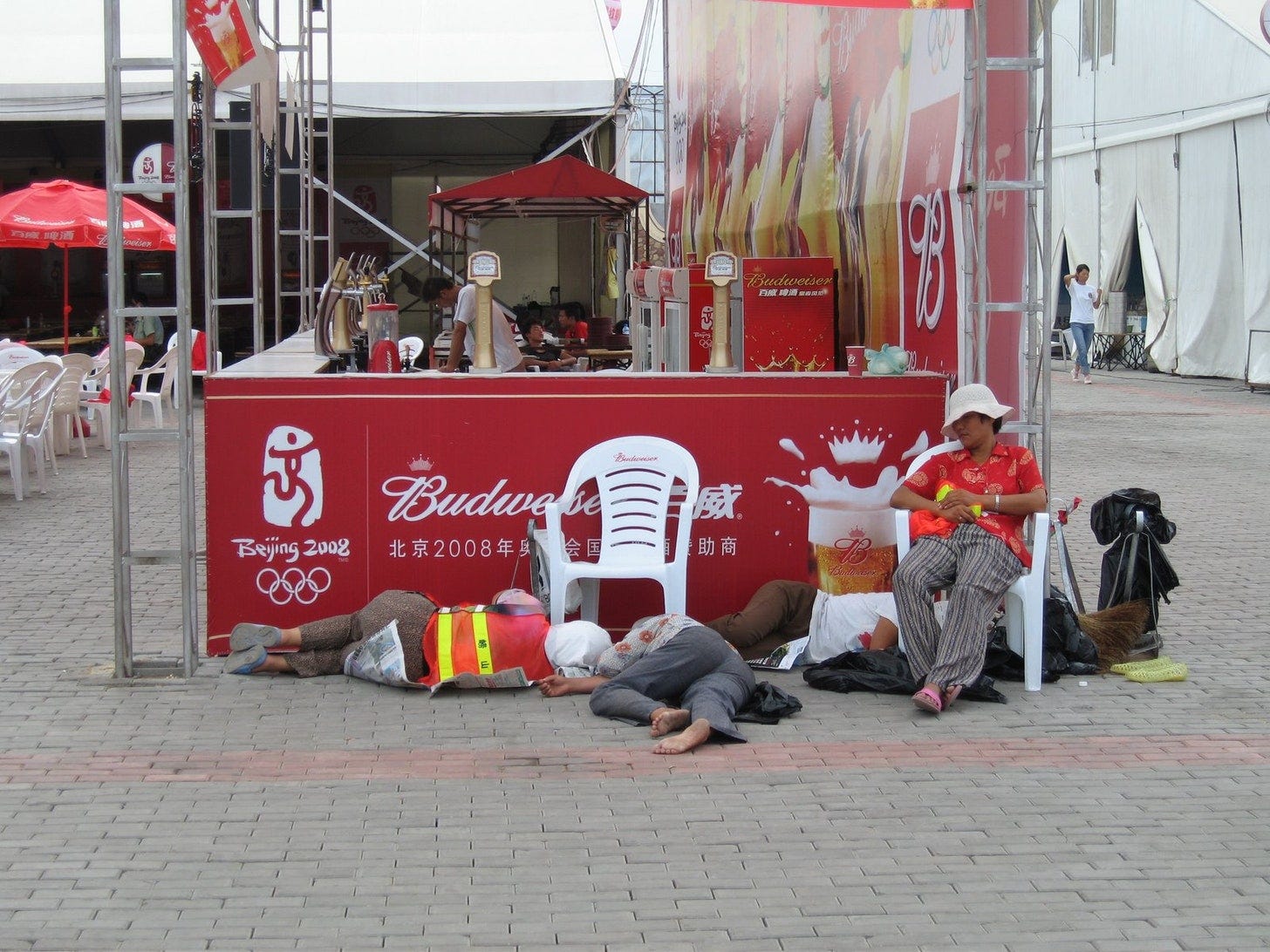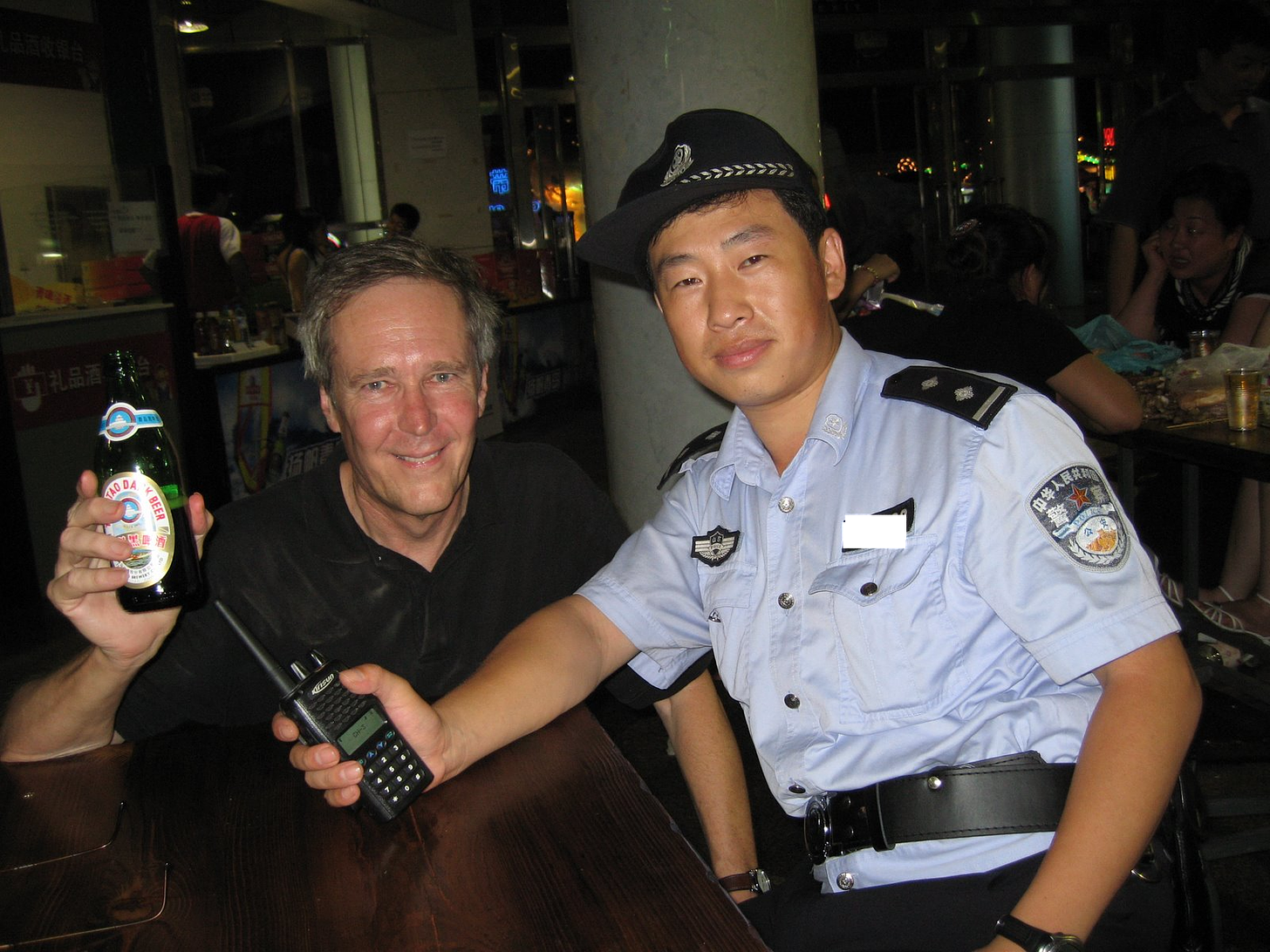The Questions I Ask About China
It's impossible to ‘know.’ So it's all the more important to continue to ask.

I know how to spot people who have not spent much time in China. It’s through the certainty and assurance of their claims about what “China” is. These include claims in the past 24 hours, after the online talk between Joe Biden and Xi Jinping. We have heard:
—China is very weak. Or, China is very strong. So I hear on TV or radio and read in policy papers and op-eds.
—China is out to get the rest of the world. Or, China is barely able to hang on.
—Chinese industries are just beginning to show their all-fronts dominance. Or, the Chinese economy, especially its high-tech and university/knowledge-intensive sectors, is just about to hit a variety of walls.
—China is determined to teach the rest of the world a lesson and prove the superiority of its brand of “democracy,” versus the democracies in which people can actually vote. Or, China is too busy to care about anything but itself.
—China collectively is thin-skinned and will react to any comment or slight that “hurts the feelings of the Chinese people.” Or, again, China is too busy to care about chatter from anyplace else.
—China is both burdened and guided by its famed “5,000 years of history” and “100 years of humiliation.” Or, China adapts instantly and lives in the now.
—“The Chinese,” in their billion-strong ranks, are prosperous and happy. Or, they’re disillusioned, resentful, and about to rebel.
—The Chinese state media and propaganda outlets are controlling discourse around the world. Or, Chinese boosterism is so clumsy and inward-directed that it makes the country look silly.
—Xi Jinping has cemented power and should be considered the PRC’s “leader for life.” Or, he is building up enemies faster than friends and could be gone next year.
—The U.S. and China are headed for war, probably over Taiwan. Or, the U.S. and China have worked out a 40-year modus vivendi, specifically about Taiwan, which neither has an interest in disrupting.

‘Truths’ that are true … and false
Think of any large, complex group that you are part of or know first-hand. For that group, it’s quickly obvious that contradictory generalizations can all be “true.” And also can all be partial or misleading. Let’s apply the principle to America:
-My country is idealistic. It is also unprincipled and cruel. It has been generously open, and it has been spitefully closed. It has done “the right thing” at crucial junctures, and it has been abysmally wrong. Its elected leaders range from its 16th president to its 45th.
-Any American who is outside the country is aware of these contradictions—and also resigned to the reality, when traveling, of being a one-person vessel for what other people happen to like or hate about the country. “America! Number One! New York! Michael Jordan!” I heard long ago in rural Burma. “America, world’s best napalm”—or AR-15s, or drones, I’ve heard, in variations, in various places, after the U.S. wars and massacres of the past half-century. “America, where democracy kills itself,” I heard from a Chinese student in Shanghai in 2017.
Any member of any very large, very complex group, inevitably responds to such generalizations with: Yes, but… It’s always more complicated. Anything you can say about American culture might be true—and so might its opposite. For instance: American culture is enormously white-dominated. And: it is less so than 50 years ago, or than most other major countries are today. That’s one item on a long “it’s complicated” list.
You could make the same point about most other large and varied groups. Almost anything you can write about “the young people” these days—or “the old people”—you could write the opposite as well. Or about “people with children.” Or “people without children.” Or “people.” The more you know, the less comfortably you stereotype.
Which brings us back to China. I instinctively doubt any flat absolute about the billion people who live there. That is because I know what people who disagree would say, and what evidence they would use.
Of course we need to make overall “what do we do next?” assessments about China, as with any consequential reality. I took my unified-field-theory stab at that five years ago, just before the Donald Trump/Hillary Clinton election, with an argument that whoever became president would need to deal with the new realities Xi Jinping was creating.
But the uncertainty about many fundamental points, and the need for constant updating and retuning and reality-testing, is why I rely on ongoing “it’s complicated, but…” assessments from many sources. To name just a few who are friends: Andy Rothman, a former US diplomat who is now with Matthews Asia, with his recent piece “What is Xi Jinping Thinking?” Or Bill Bishop, with his ongoing Sinocism assessments. Or Christina Larson, with her dispatches about the environment. Or Charles Edel, another former U.S. diplomat now with the Wilson Center and the US Studies Centre in Australia. And many many more.
‘I don’t know’ is point one. What is point two?
If our starting point about China is “we don’t know,” what are some of the things we would like to know, and should keep triangulating evidence and indications about?
Here are a few:
Is it more useful to think of China as a rich country, awash in fortunes and cash—or as still a poor one, with hundreds of millions of people struggling for survival? Of course both realities still prevail, and I can give you illustrations of each. (Profile of a hugely rich person, here; of a poor village, here.) But how do outsiders give weight to these contrasting realities, and bear them both in mind?
Is it more useful mainly to see China’s international behavior as reflecting confidence, spilling easily toward arrogance? Or instead mainly arising from insecurity? I wrote about the unhealthy potential syndrome of insecure arrogance several weeks ago.
How does the phrase “time is on our side” register in China? Forget the “5,000 years of history” boilerplate. How does the next decade look? Or the next half-century? To businesses, families, the government? Is the baseline assumption “act now, while we can”? Or “bide our time, what’s the rush”?
For 30-plus years, from Deng Xiaoping through Hu Jintao, Chinese policy turned decisively (if unevenly) outward, and more open. For ten-plus years, under Xi Jinping, it has turned the opposite way: inward, and more repressive and closed. What’s the best baseline assumption for the decades ahead? That the clampdown could still be a “phase”? Or that it is the entrenched new normal, until something happens to dislodge it?
Are the Chinese leadership and the Chinese military actually itching for a confrontation over Taiwan? Or, despite chest-thumping and bombast, would they prefer that the next 40 years resemble the past 40? That is, would they prefer (as the US should) another multi-decade run in which the US and the PRC deeply “disagree” about Taiwan, but no one pushes for a military showdown?
Is the long-vaunted, and globally crucial, prospect of US-Chinese cooperation on climate issues entirely a mirage? Or might it be the rock on which the two countries’ relations, and the world’s hopes, could be rebuilt?
Is there anything the outside world can do about the severe repression of Muslims in Xinjiang? Anything that would not end up making conditions worse? The duty of the world press (in my view) is to continue to bear witness. But what, specifically and practically, can world governments do?
Do most people in China imagine that the country’s “Golden Age” is recently behind them? Or that it is still ahead? I know that Americans have asked this question about their own country more or less since it was founded. In China’s case, it would apply to the decade before Xi Jinping took power—the laissez-faire-in-retrospect era of Hu Jintao. Do Chinese people look back on that time of opening-up with any nostalgia? Or are they happier that some of the official corruption of those years is being cleaned up? Again I’m sure the answer is, “it’s complicated,” but I’d like to know more.
And when it comes to the US, is it possible for Americans to take China seriously, without viewing it as an enemy? As I’ve written countless times, this is one of the great impossibilities (or at least challenges) of America’s interaction with the world: Paying sustained attention to other societies, without thinking we must prepare for combat against them. It would be good to demonstrate that we are capable of this, with China.

Those of us who aren’t ‘China people,’ need to be people who keep learning about China
I will never think of myself as a “China person.” I first went there, with my wife, Deb, and our then-young children, in the mid-1980s, during a four-year stint in Asia. We visited in the 1990s, and then Deb and I lived there off and on from 2006 to 2011. Between us we wrote many articles, hundreds of posts, and three books about the place. The best of the books is Deb’s Dreaming in Chinese. But I can still barely deal with the language—Deb is much more capable—and I am more aware every day of how much more there is to learn.
Yet continuing to learn, is what we all need to do. And continuing to be wary of anyone who is “sure” what has just happened in China.
One of my goals in this space will be to continue raising the questions, and sharing our necessarily provisional answers.





I lived & worked for three years in Cairo, Egypt, and for three years in Accra, Ghana. I understand what it means to live among someone other than Americans in a foreign land, and I understand completely what you are saying about the stereotypes far too many Americans apply to virtually any tribe or nation other than the one to which they belong. But one of the most important things I learned about this I learned in Cairo.
I was there from 2012 to 2015, so I witnessed the rebuilding of the government after the overthrow of Mubarak. When Morsi won the election in the summer of 2012, Egyptians who didn't like Morsi told me he had been "installed" by the Obama administration - and they had irrefutable proof. When Morsi was removed from office by the military a year later, ostensibly due to massive public pressure, Egyptians who wanted Morsi to stay in power said that the Obama administration had orchestrated the coup that overthrew the Morsi presidency - and of course they had irrefutable proof.
The lesson for me was simple: the US was the favorite scapegoat of many Egyptians who objected to what was happening inside their own country. It was easy to blame the evil happenings on America, because no matter the accusation, there were always plenty of Egyptians who were happy to believe it. And that leads us to the problems you speak of regarding China: no matter what happens in the US, we can blame it on China, or Russia, or someone - and sure enough, we will always find plenty of people who will nod their heads in agreement.
The most difficult thing to do is for us to recognize our own errors and work to correct them. This is true on an individual and a national level. It's so much easier to find a scapegoat, to paint a portrait of that scapegoat as the epitome of evil, and proudly declare that if not for that scapegoat, all would be well.
And of course there will always be plenty of people eager to support that view.
Sorry to sound like a broken record, but I really respect your perspective and basically am always interested in what you have to say. To me this is excellent journalism. It is not biased, it does not try to draw our conclusions for us and I came away feeling like it has changed and opened up my perspective on the complex subject of China. Thank you.